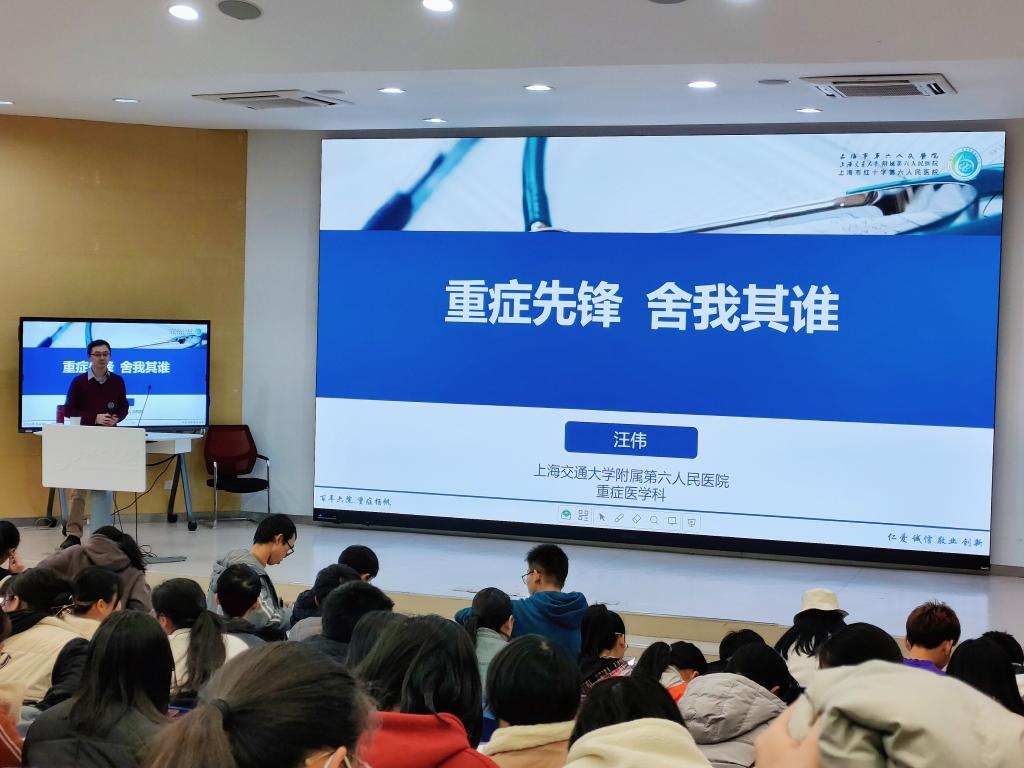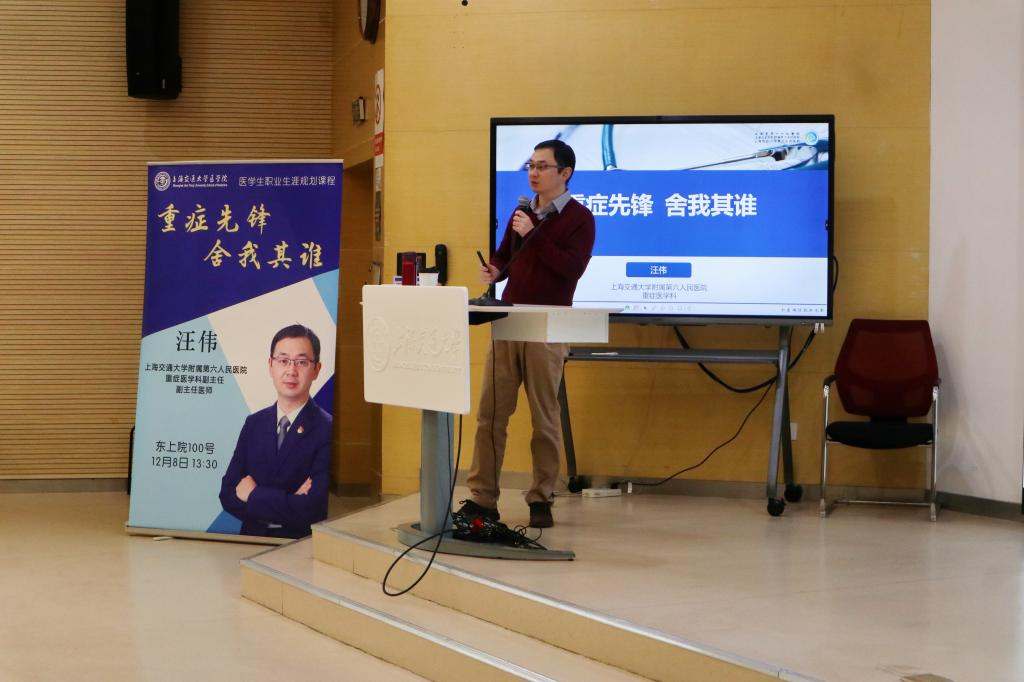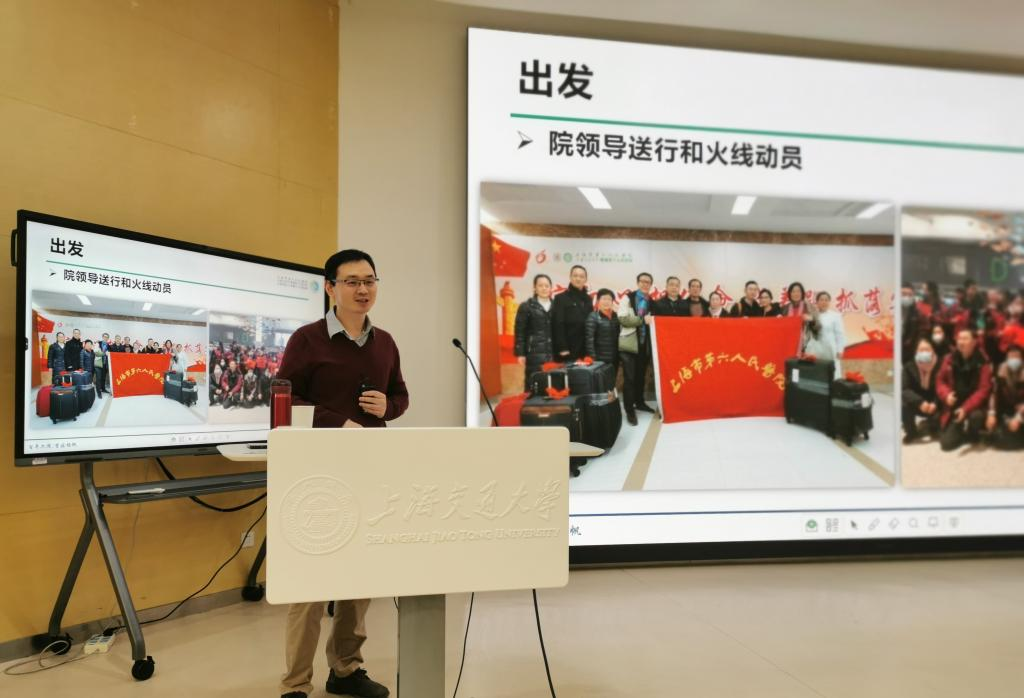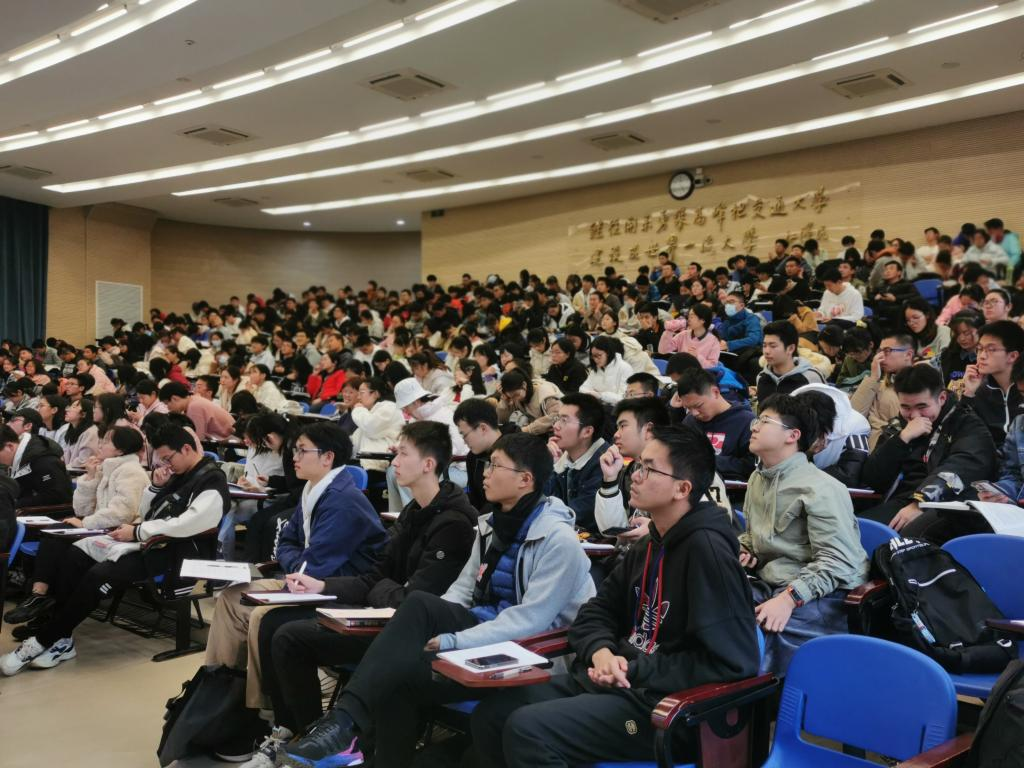On 8 December, Wang Wei, the associate chief physician of Critical Care Medicine Department of the Sixth People’s Hospital Affiliated to Shanghai Jiao Tong University School of Medicine, gave a wonderful lecture as a topic of Vanguard for the ICU, Only I Can Do for the freshman medicine student at the No.100 class of east upper building, Shanghai Jiao Tong University.

The lecture mainly focuses on the three topics of “Unveiling the Veil of Critical Care Medicine”, “Severe Cases under COVID-19” and “New Challenges Faced New Medical Reform”. Firstly, Wang Wei points out the definition of critical care medicine: provide the patient with life-threatening or potential high-risk factors for various reasons systematic and high-quality nursing and treatment technology. He also emphasizes that the Intensive Care Unit (ICU), as the clinical base of critical care medicine, is the professional department for hospitals to focus on and treat patients with in severe condition. Wang Wei also introduces students the critical care medicine’s development history, including origin and rudiments of ICU, modern ICU and establishment of special department of ICU. Meanwhile, he also points out the development status of critical care medicine. During the three national ICU censuses in 2006, 2011 and 2015, the number of critical care medicine departments in China increased from more than 1000 to nearly 4,000, the number of ICU medical practitioners in China increased to 63,605, and the number of nurses in China increased to more than 100,000. By 2015, nearly 66% of ICUs in China had been included in the management of critical care medicine departments. He underlines that admission scope of the critical care medicine department is to rescue the patients with acute and critical diseases in various systems and introduces the working characteristics of the critical care medicine department to the students: first, the rescue platform for critical patients of various departments; Second, provide monitoring and supporting for important organs and systematic functions-multimodal monitoring; the third is the treatment mode of multidisciplinary collaborative team (MDT) cooperation.

Later, Wang Wei introduces the features, advanced and superior aspects compared with ICU in Germany of daily medical care work; first is the reasonable layout and advanced equipment; second is focusing on patient’s safety and recovering; third is hand hygiene and control of nosocomial infection; forth is proper medical systems in Germany and nearly no doctor-patient disputes.

When it comes to the situation that they rushed to Wuhan as the first batch of medical teams assisting Hubei in the Spring Festival of 2020, they mentioned the hospital’s leaders saw them off before departure. After arrived in Wuhan, the whole Party members of medical team held the first meeting and established the temporary Party branch. He said: “the Party members should be responsible, take the lead and work together to overcome the epidemic. At the critical moment, the Party members should be in the frontline.” Under difficult circumstances in the beginning of fighting against the COVID-19, they overcame the hardships and try their best to find the solution as well as devote themselves to treatment of severe patients. Review on the whole experience of fighting against the epidemic, Wang Wei expresses his appreciation of the Party and government’s strong measures, the care and support of the hospital and department as well as the encouragement from family and friends.
When the new medicine reform is mentioned, Wang Wei indicates it will bring new thing of new efficiency, new impetus and new atmosphere, but there are also many challenges. For example, Overtreatment may lead to less service. In the end, Wang Wei gives three sentences of messages: firstly, the essence of medicine is to make our life better; secondly, Vanguard for the ICU, Only I Can Do-learn the medical skill well; lastly, paying attention to the medicine reform is to pay attention to your prospect.

In the question part, Wang Wei gave patient and detailed answers in the light of student’s questions about the future development of critical care medicine, the handling of doctor-patient disputes, and the handling of clinical emergencies. The lecture ended with warm applause from the students.

